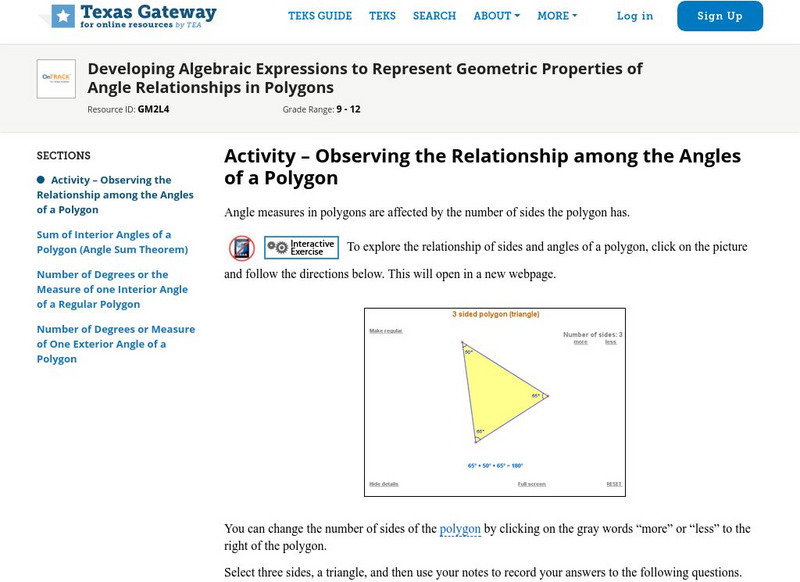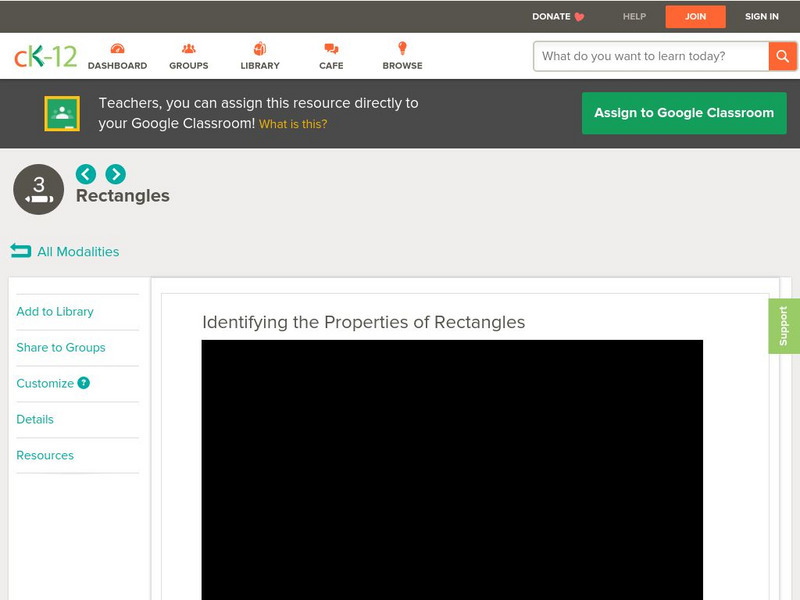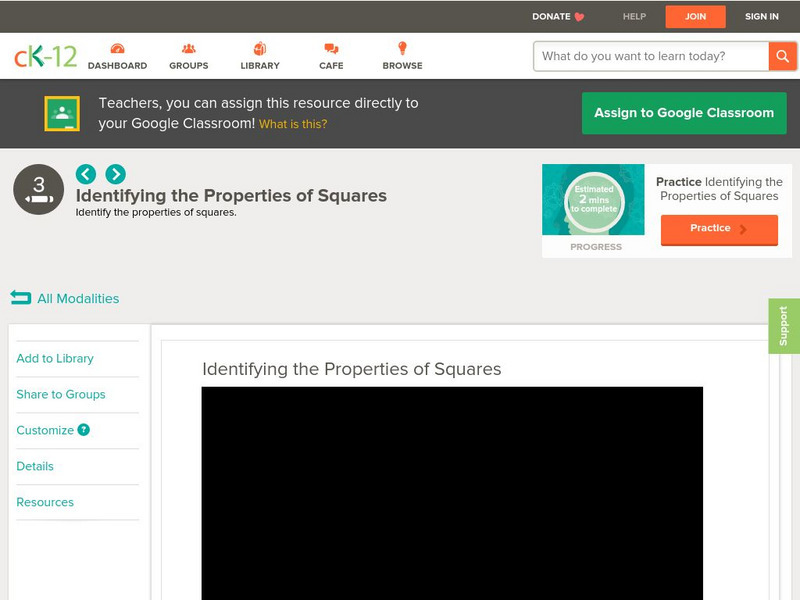Curated OER
Similar Triangles - Applied Problems
Pupils differentiate between similar and congruent triangles. For this geometry lesson, students identify the angles of triangles using the similarity theorem. They apply concepts of triangles to the real world.
Curated OER
Geometry Flip Book
Students investigate the concepts of geometry that can be grouped into a flip book that can be used for teaching and review purposes. They define the differences between two and three dimensional figures. Also polygons are reviewed and...
Curated OER
Learning About Guatemala Through Its Kites
Students are introduced to Guatemala and to the tradition of giant kites. They decorate the kite sail and construct the kite. Students identifies possible causal factors contributing to given historical events.
Curated OER
Creating Parallelogram
Learning how to define vocabulary words related to solving parallelograms will assist your learners in identifying different parallelograms. They use the navigator to view different shapes created by moving the parallelogram around.
Curated OER
Length, Perimeter, and Area
Students explore the concepts of length, perimeter and area. Students develop an understanding of length, perimeter, and area. Students calculate the area and perimeter of random shapes and calculate the area and perimeter of a triangle...
Curated OER
Surface Area with Polydrons
Students explore measurements by analyzing geometric shapes. In this surface area lesson, students identify the terms volume, weight, perimeter and area in order to find the requested measurements of specific polygons. Students utilize...
Curated OER
Geometry and Shapes
Fourth graders are asked to name different shapes.Four to five students to share their answers with the class. The teacher leads the discussion in geometry about the properties associated with shapes.
Curated OER
Teaching the Bell Tetrahedral Kite
Students complete readings on kite making and kite flying. They analyze how the parts of a system interconnect and influence each other. Students identifies and uses color and form in a 3D artwork.
Curated OER
Math: Equal Area Triangles
Students examine a math worksheet and determine how to divide a single triangle into four of equal area. Using geometric principles, they sketch two additional ways to divide into into four equal triangles. To conclude, students...
Curated OER
Teaching the Tr'panier Trapezoid Kite
Students analyze how the parts of a system go together and how these parts depend on each other. They comprehend the forces in terms of strength and direction. Students observe, measure and describe weather indicators.
Curated OER
Unit Perimeters and Areas
Students use Geometers SketchPad to find the area and perimeter of several shapes. In this geometry lesson, students determine area of rectangles and progress through irregular polygons. None of the referenced worksheets are included...
Curated OER
SAS Similarity Theorem
Students identify and use the similarity theorem. In this geometry lesson, students differentiate between congruent and similar triangles. They solve problems using the computer modifying shapes by dragging.
Curated OER
Nature's Polyhedrons
Students are introduced to polyhedrons through using straw models to explore geometric solids and constructing Christmas tree ornaments using Epsom salt crystals. Students will view interactive videos and investigate and retrieve...
Curated OER
Lines, Segments, and Rays
Fifth graders use their arm, toothpicks, and marshmallows to create lines, segments, and rays. In this lines, segments, and rays lesson plan, 5th graders learn how these appear on a plane.
Curated OER
Translating Transformations in Geometry
Students create an image using given coordinates and evaluate how the coordinates change when a slide or rotation takes place.
Texas Education Agency
Texas Gateway: Geometric Properties of Angle Relationships in Polygons
Given numerical and/or geometric patterns that represent geometric properties of angle relationships in polygons, the student will investigate patterns to make conjectures about interior and exterior angles of polygons.
CK-12 Foundation
Ck 12: Elem Math: Identifying the Properties of Rectangles
[Free Registration/Login may be required to access all resource tools.] Students watch a video tutorial and attempt practice problems on identifying the properties of rectangles.
CK-12 Foundation
Ck 12: Elem Math: Identifying the Properties of Squares
[Free Registration/Login may be required to access all resource tools.] Students watch a video overview and attempt practice problems on identifying the properties of squares.
Texas Education Agency
Texas Gateway: Making Conjectures About Other Polygons
Given information about the properties of polygons, students will verify theorems about the relationships, including the sum of interior angles, and apply these relationships to solve problems.
Math Open Reference
Math Open Reference: Polygons
Get the definition and properties of a polygon. Then explore such topics as: 1) types of polygon 2) area 3) Perimeter 4) angles associated with polygons and 5) names of polygons.
Khan Academy
Khan Academy: Classify Shapes by Line and Angle Types
Classify shapes based on pictures or attributes, such as angle types and side-lengths. Students receive immediate feedback and have the opportunity to try questions repeatedly, watch a video or receive hints.
Math Is Fun
Math Is Fun: Properties of Regular Polygons
Find a definition of regular polygon, and learn how to calculate the internal angle, external angle, and number of diagonals of a regular polygon. Also, learn how to find the area of regular polygons.
Cuemath
Cuemath: Angle Sum Theorem
Explore the world of the angle sum theorem in this mini-lesson. Provides a definition and solved examples that help with understanding their properties. Includes practice questions with answers.
Texas Instruments
Texas Instruments: What's the Angle?
Students discover properties of interior and exterior angles of convex polygons using the TI-89 and Geometer's Sketchpad.























